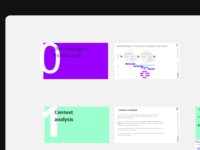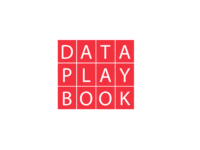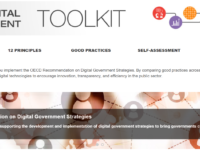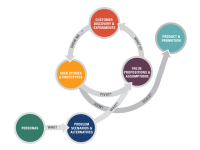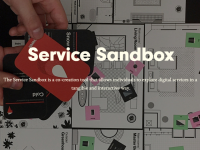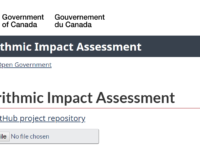Toolkit Navigator
A compendium of toolkits for public sector innovation and transformation, curated by OPSI and our partners around the world

This guide provides a detailed methodology for conducting effective and innovative data science projects in the public domain. The guide is divided into four phases: understanding the problem, designing the proposed solution, developing the pilot and implementing the solution. In each of these phases, detailed steps and practical tools are presented to ensure the success of the project. In addition, the guide includes ethical and data security considerations to ensure that the project is carried…
The AI4GOV Toolkit is aimed at fostering a human-centered and systemic perspective towards the development of public services that integrate artificial intelligence in a meaningful way. The toolkit offers a methodology and specific tools for the application of AI in real public sector projects aimed at solving societal needs, considering technology not as an end but as a means for reaching wider strategic objectives. The tools within this toolkit span throughout four main phases of the design…
This Playbook compiles over 120 short exercises, games, scenarios, checklists and handouts to help individuals and teams discuss, learn, and share all aspects of the data lifecycle. The Playbook is divided into 10 modules that can be modified to suit individual needs and composed of facilitator tips to help strengthen data capacity. The resource is modular and includes specific exercises and example workshop templates. This content is also available in Arabic.
The toolbox for designing digital services is intended to help public service owners, managers and other interested parties understand the design process and includes tools to make the process smooth. The process is described both in Estonian and English but tools are only in Estonian, which can be machine translated. The resource includes guidance on preparation and building a service team, understanding and choosing a focus, problem identification and solving, testing solutions, development of…
This toolkit is designed to help governments implement the OECD Recommendation on Digital Government Strategies. By comparing good practices across OECD countries, this site guides decision-makers in using digital technologies to encourage innovation, transparency and efficiency in the public sector.
The toolkit is composed of 12 principles to support the development and implementation of digital government strategies that bring governments closer to citizens and businesses, good practices and…
The resource authors define responsible tech as applying an ethical approach when developing, using and distributing new technology in a way that contributes to an environmentally, socially and economically sustainable society.
The Responsible Tech: Self-Assessment Tool is an online tool that takes users through a series of structured questions in order to enhance a responsible approach to tech development work. The tool can be used in the intervention, development and distribution of new…
The Venture Design Process offers set of templates, tutorials, and templates for systematic execution of continuous design and delivery. It covers the phases: Personas, Problem Scenarios & Alternatives, Value Propositions, Assumptions & Experiments, Customer Discovery & Experiments, User Stories & Prototypes, Product & Promotion, as well as modules covering agile management and business model generation. The resource is targeted at private sector entrepreneurs and focuses on digital products and…
The Service Sandbox is a visual, playful, co-creation tool that allows individuals to explore digital services in a tangible and interactive way. The sandbox can be used to test an existing service or to create new ones. The resource is oriented toward designing interior environments, especially digitalising environments, but could be used more broadly. The tool consists of three phases (build, ideate and define), plus a pitch template for taking the process one step further. According to the…
The AIA is a questionnaire designed to help assess and mitigate the impacts associated with deploying an automated decision system. It helps identify the impact level of an automated decision system. It was developed with the Canadian Directive on Automated Decision-Making in mind but it can be applied elsewhere. The questions are focused on business processes, data, and system design decisions.
The questionnaire asks around 60 questions and the results will demonstrate impact level as well as a…
This resource provides South Australian Government organisations with guidance on the development and format of their digital strategies, which they distinguish separately from an information and communications technology (ICT) strategy. The toolkit contains guidance on the development and format of digital strategies, a digital maturity assessment tool, a digital transformation prioritisation tool, a digital strategy template, and an implementation plan template.

